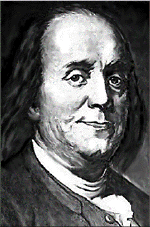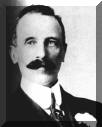 |
| HOME | GLOBAL | DISTRICTS | CLUBS | MISSING HISTORIES | PAUL HARRIS | PEACE |
| PRESIDENTS | CONVENTIONS | POST YOUR HISTORY | WOMEN | FOUNDATION | COMMENTS | PHILOSOPHY |
| SEARCH | SUBSCRIPTIONS | JOIN RGHF | EXPLORE RGHF | RGHF QUIZ | RGHF MISSION | |
|
|
|
RGHF Senior Historian Basil Lewis |
| FORERUNNERS OF ROTARY The idea of forming clubs for men to indulge in fraternity and conviviality goes back at least to Roman times, but it was perhaps from the late 16th and then through the 17th and 18th centuries in London, that clubs as we know them developed. The Bread Street Club founded by Sir Walter Raleigh, Ben Jonson's Apollo Club and later Dryden's Will's Club were among those of note from these years. In 1710, Joseph Addison commented on clubs wherein "the chief inhabitants of the street conversed together every night". Frequently these meetings were held in the coffee houses, or inns where the conviviality could be enhanced by alcohol. Addison in the 'Spectator' also drew attention to one club he visited in which the rules included "None shall be admitted to the club that is of the same trade with any member of it."
In Britain, at least, it was probably
the onset of the First World War in
1914 that gave an impetus for clubs to look beyond their own self
interest to the needs of the troops, and also of the Home Front. The
Bulletin of the Manchester Club, typically, moved to describing fund
raising activities for the war effort. In turning to community or
even national service, British Rotary was beginning to turn towards
the ideal of 'Community Service' which had been one of the main
planks of Paul Harris' inspiration in the creation of Rotary. Also see
"other
organizations" the stories of groups before and after Rotary. |

